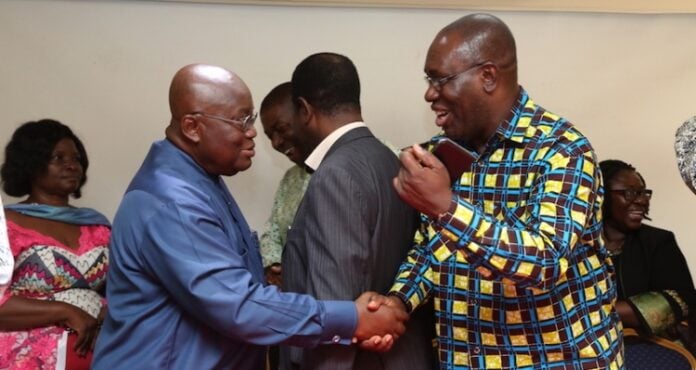The recent meeting between the Ghanaian government and the leadership of Organised Labour took place following the notification of an impending nationwide strike set for October 10. This strike action, announced by Organised Labour, stems from increasing concerns about illegal mining activities that have been detrimental to the environment and local communities. Highlighting the urgency of the situation, President Nana Addo Dankwa Akufo-Addo convened the meeting to discuss the pressing issues related to illegal small-scale mining and sought to persuade the union representatives to reconsider their planned protest.
During the discussions, President Akufo-Addo and his administration reiterated their commitment to addressing the environmental challenges posed by illegal mining. The government acknowledged the detrimental effects of these activities on natural resources, public health, and the livelihoods of local residents. The Minister of Information, Fatimatu Abubakar, emphasized that the government is determined to engage all relevant stakeholders to formulate effective solutions aimed at curtailing illegal mining’s adverse impacts.
Abubakar’s statements reflected a broader governmental stance focused on sustainable mining practices and enhanced environmental protection strategies. By reaching out to Organised Labour, the government aimed to foster cooperation and seek collaborative approaches to tackling the challenges posed by illegal mining. The meeting was an indication of the administration’s recognition of the importance of organized labor voices in influencing policy directions and achieving lasting resolutions to pressing national issues.
The government’s response to the potential strike illustrates a proactive approach to managing labor relations while addressing critical environmental concerns. In an era where illegal mining has escalated, leading to soil degradation and water pollution, the Ghanaian government understands the necessity of striking a balance between economic development and environmental sustainability. Efforts to stabilize the situation require engaging diverse stakeholders, from mining companies to local communities and labor unions.
Significantly, the meeting served as a platform for dialogue rather than confrontation, a strategy intended to build trust and explore mutual interests between the government and labor groups. The collaborative approach underlines the need for cohesive policymaking, ensuring that the voices of affected workers and communities are integrated into discussions on illegal mining and environmental regulation.
In summary, the meeting’s outcome is yet to unfold, but the government’s engagement with Organised Labour offers a hopeful avenue for resolving the complexities surrounding illegal mining in Ghana. As both parties continue to negotiate and share insights, the emphasis remains on protecting the environment while fostering a viable and sustainable mining sector that can benefit all Ghanaians. Continued discussions and collaborative efforts will be vital in addressing the root causes of illegal mining and establishing a framework that safeguards the nation’s natural resources for future generations.














